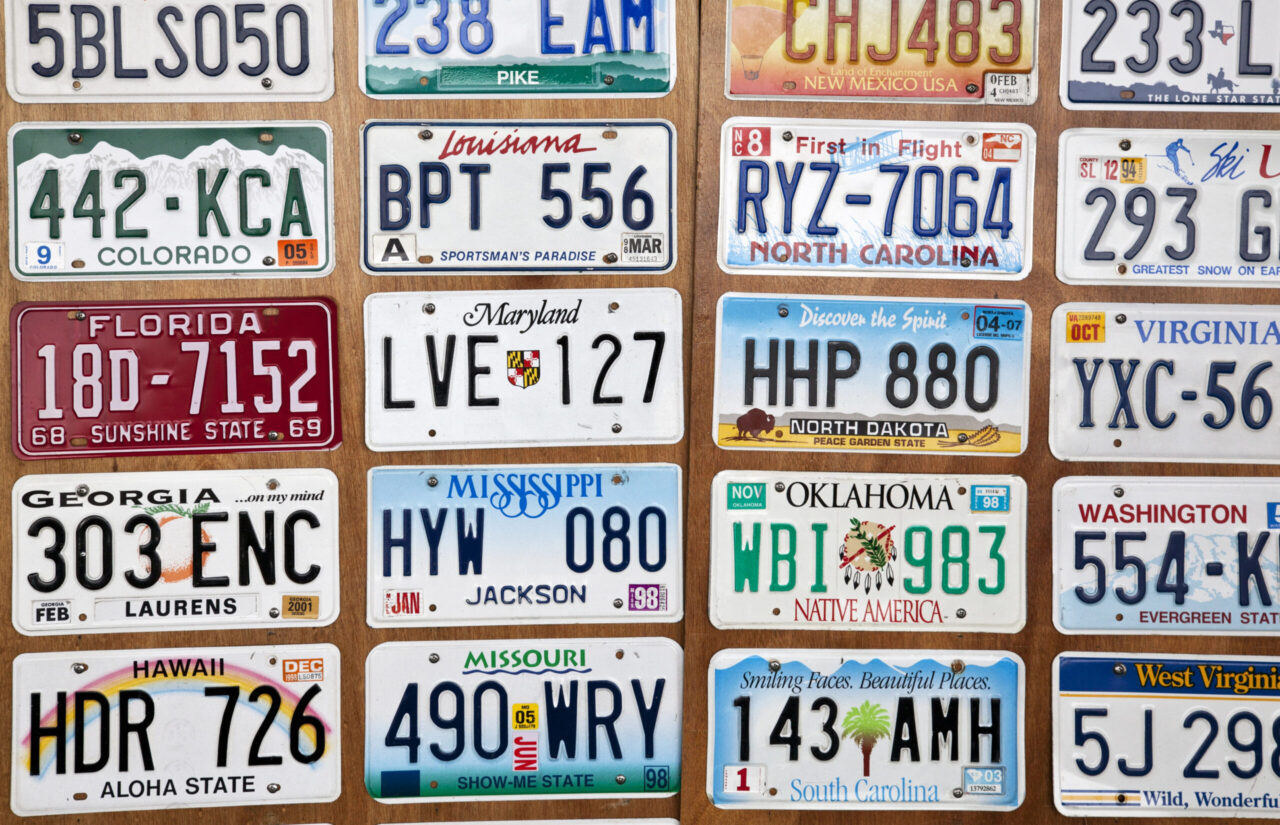Question: I just got a new car and haven’t received the new tags yet, but I’m still well within the permitted time frame to have the temporary ones. Can my temporary car tags travel across a few different states?
Answer: In most cases, yes, your temporary car tags can typically travel across state lines as long as your car is registered, your tag is valid and you are within the permitted time frame for its use.
For example, if you purchase a vehicle in New York, you can get interstate in-transit permits to transfer the car from New York to another state. At time of publication, these permits are valid for 30 days and cost $12.50.
There are other situations where you can get temporary plates from your destination state. For example, if you are moving to Florida, you can get a 30-day temporary license plate to secure ownership documentation from your home state.
In states like California and Illinois, you should use your temporary tags while the actual license plate is being mailed to you.
However, there are a few considerations to keep in mind. Not all permits are eligible to cross state lines.
In Texas, you can get permits with different durations and rules. The one-trip permit allows you to travel within Texas only. Here are the exact rules:
- Issued for the temporary movement of an empty vehicle or trailer
- You may only use it to travel in Texas, but you do not need to be a Texan to purchase the permit
- The permit is good only from where you start (point of origin) to where you end (point of destination) in Texas.
- You do not need an inspection for a one-trip permit.
- You can apply for a maximum of three, one-trip permits per vehicle.
This is the most restrictive temporary tag you can get in Texas, and you have much fewer rules if you choose to get a 30-day permit (for most vehicles) or a 72/144-hour permit (for heavy vehicles only).
Other states, such as Utah, issue temporary permits for specific purposes, such as safety and emissions testing only. According to Utah’s DMV, the On the SPOT and Renewal Express temporary permits are meant to “allow the vehicle owner 30 days to operate the vehicle in order to obtain the vehicle’s safety and/or emissions certificates.”
Temporary car tags across state lines recapped
Interstate car purchasing happens frequently, and one of the most common uses for temporary tags is so you can drive your car home. Some states have a class of temporary tags for this purpose. Going further, some temporary tags are meant to be used in lieu of your permanent tags.

Xuyun Zeng is a writer and editor with a wide-ranging content background including tech, journalism, cars and health care. After graduating with highest honors in journalism, Xuyun led a newspaper to win eight awards, helped start an award-winning film industry podcast and has written over a hundred articles about cars repair, state laws and insurance. Prior to joining Jerry, Xuyun worked as a freelance SEO consultant with a mission to create the best content that will help readers and grow organic traffic.

Giselle Gomez is an editor with over a decade of experience editing content across personal finance, education, travel, and sports. In editing for Jerry, Giselle’s focus is on making sure content is consumer and SEO-friendly and helping readers understand all things car ownership. In prior roles, she worked as a content strategist, syndication editor, and writer. Her work is featured in AP, NerdWallet.com, BestColleges.com, and more. Giselle holds a master’s degree from Arizona State University.








